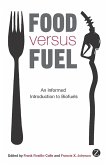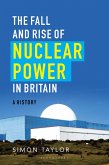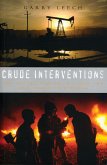The oil price collapse of 1985-6 had momentous global consequences: non-fossil energy sources quickly became uncompetitive, the previous talk of an OPEC 'imperium' was turned upside-down, the Soviet Union lost a large portion of its external revenues, and many Third World producers saw their foreign debts peak. Compared to the much-debated 1973 `oil shock', the `countershock' has not received the same degree of attention, even though its legacy has shaped the present-day energy scenario. This volume is the first to put the oil `counter-shock' of the mid-1980s into historical perspective. Featuring some of the most knowledgeable experts in the field, Counter-Shock offers a balanced approach between the global
picture and local study cases. In particular, it highlights the crucial interaction between the oil counter-shock and the political `counterrevolution' against state intervention in economic management, put forward by Ronald Reagan and Margaret Thatcher in the same period.
picture and local study cases. In particular, it highlights the crucial interaction between the oil counter-shock and the political `counterrevolution' against state intervention in economic management, put forward by Ronald Reagan and Margaret Thatcher in the same period.









